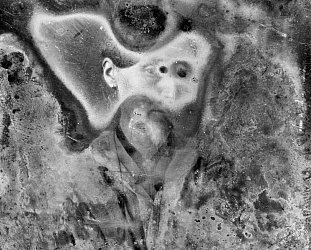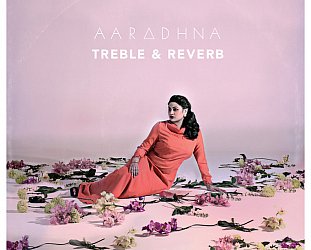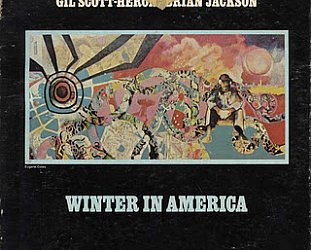Graham Reid | | 1 min read
Mumbay

The previous studio album Day to Day by this US-born, India-raised and Britain-based percussionist/scene-maker received immense praise at Elsewhere and was in our best of 2016 list.
It was a blazing and exciting fusion of samples, electronica and jazz. It was also quite the challenge.
This time out Korwar – shying not a bit from making challenging music – invites in a number of Indian and Anglo-Indian rappers, The Comet is Coming's Danalogue on synths, the poet Zia Ahmed (the LKJ of his generation, if you like), singer Aditya Prakash and others.
The result is a swirling, occasionally bluntly urban, sometimes furious melange of contemporary politics, fist-tight energy (try the powerful tension-release of the opener Mumbay) and cross-cultural comment.
It attacks racial, historical and cultural divides, and stings with discontent.
But it is also a powerfully addictive brew: Coolie looks at the dark history of slavery in the drug trade (some of it in chest-tightening Punjabi from Prabh Deep over a strident jazz sax backdrop with thumping beats); and the extraordinary nine minute-plus Bol – a kind of suite in separate but interlocking parts – weaves its way into attention through drone, Ahmed's menacing monologues about racial stereotypes, the dispossessed (“I am Enga-land . . .”) and so much more before it takes off to the cosmos in a soaring vocal by Prakash and thrilling, dense percussion at the end.
The 12-minute City of Words which sits at the centre of the seven main tracks (there's also a short snippet of street voices) offers something of a breathing space with a sax solo by Chris Williams which seems to reach back to Joe Harriott and John Mayer's Indo-jazz fusion in the Sixties, under-pinned by Korwar's busy, cascading percussion and elevated by the dreamy vocal by Mirande – who also appears on Good Ol' Vilayati (whitey) – which moves it from the secular to the spiritual. . .
Ahmed's poem Mango is as current as what the Brexiteers and the racist Trump would have you believe about immigrants.
Go back home? What, back to London NW2?
“This is a modern brown record. The kind of record that a contemporary Indian living in the UK for the past 10 years would make,” Korwar has said.
“This is what Indian music sounds like to me right now, and that means incorporating multiple brown voices. If anyone has a problem with that, they should be questioning what they think Indian music should be.”
No problem around here.
This album recorded in India and Britain – which fuses tradition and inner-city, anger and astutely delivered messages (Pravasis at the end) – sounds essential and part of the continuum of voices of necessary dissent out of Britain.
This album is available on vinyl at Southbound Records in Auckland (see here). You can hear it on Spotify here.





post a comment